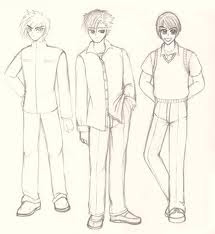We’re
still watching Miss Representation. In one of my earlier posts I was ranting
about people mistrusting the interviewees in the documentary. Well, for this
post I’m going to prove that one of them is at least reliable on some of the
opinions they give.
I
was watching the documentary and was surprised when the actress Geena Davis was
interviewed to speak about women being represented poorly in the media. I was intrigued
a couple times when she gave several statistics and seemed to be quite
knowledgeable on the subject. I was surprised because I couldn’t help but
think: But she’s an actress. Why does she know all these statistics about women
in the media? Well, I did some research and found some pretty interesting
things about her that I didn’t know.
First off, she is the founder of the Geena Davis
Institute on Media. With her program, she did some extensive research on
children’s movies. She found that, “for
every female character there are three male characters in G-rated.”
With this knowledge, Geena and her program work to
get movie creators to make movies with an equal ratio of girls to boys.
Looking
at her biography, website, and learning about an award for her work in this
area I’m definitely more inclined to respect her opinions in this matter. If
she’s managing this big institute, doing research on these things, and as an
actress herself, surely she is reliable when it comes to how women are
presented in the media.
(251 words)




